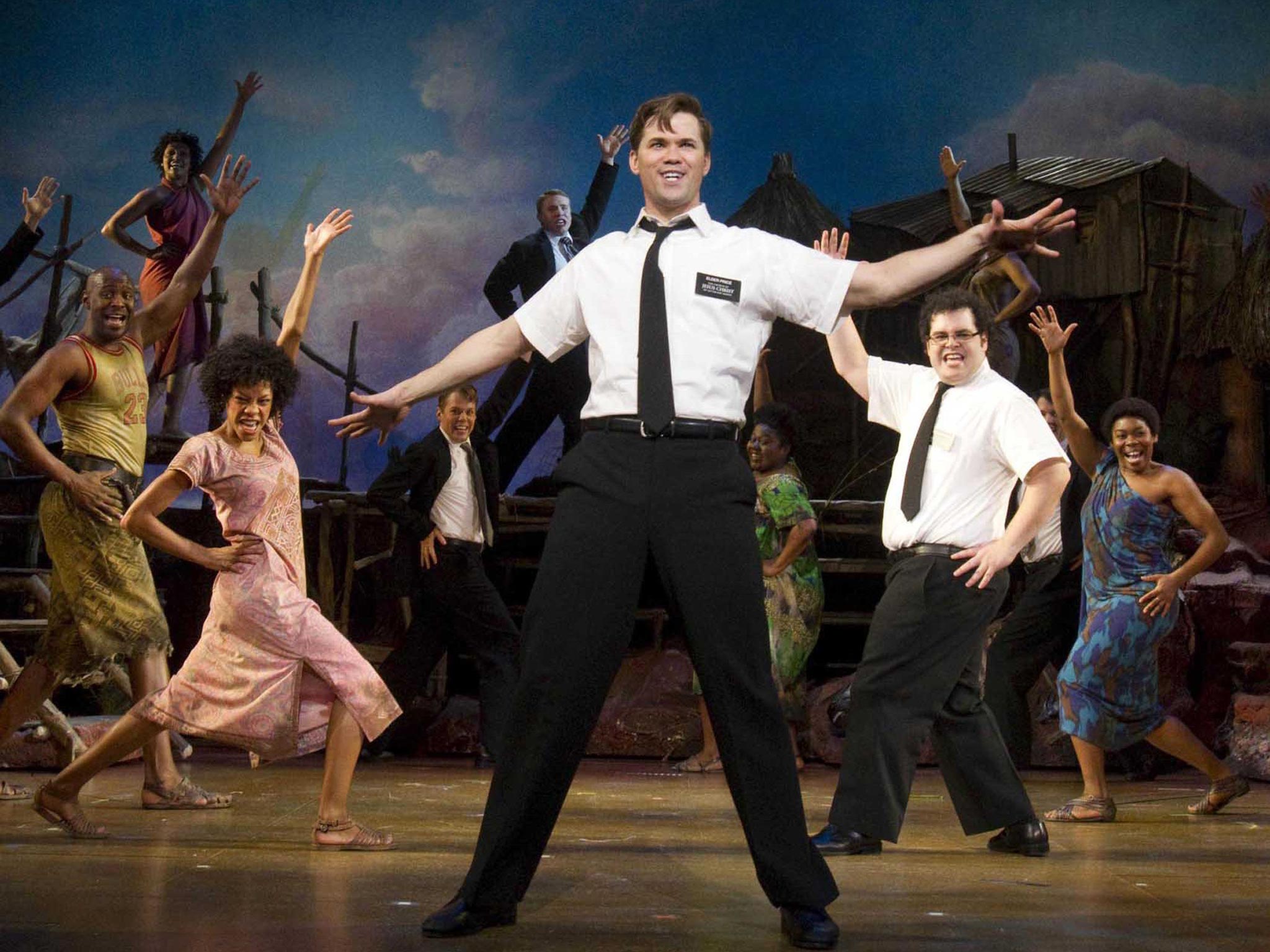The Independent's journalism is supported by our readers. When you purchase through links on our site, we may earn commission.
I’m a feminist Mormon. Almost everything you’ve heard about my culture is wrong
Please stop asking me about ‘magic underwear’ or how many moms I had when I grew up


Your support helps us to tell the story
From reproductive rights to climate change to Big Tech, The Independent is on the ground when the story is developing. Whether it's investigating the financials of Elon Musk's pro-Trump PAC or producing our latest documentary, 'The A Word', which shines a light on the American women fighting for reproductive rights, we know how important it is to parse out the facts from the messaging.
At such a critical moment in US history, we need reporters on the ground. Your donation allows us to keep sending journalists to speak to both sides of the story.
The Independent is trusted by Americans across the entire political spectrum. And unlike many other quality news outlets, we choose not to lock Americans out of our reporting and analysis with paywalls. We believe quality journalism should be available to everyone, paid for by those who can afford it.
Your support makes all the difference.I’ll never forget when I saw The Book of Mormon musical. Sitting elbow-to-elbow with people in a Boston theater, I made sure to watch the audience as much as the stage, keeping an eye on what other people would laugh about. As the play progressed, I chuckled along, letting the catchy songs get stuck in my head. Though a few moments made me cringe, I didn’t outright hate it. How open-minded I am, I commended myself. I can take a joke. But in the pit of my stomach, I felt some unease and I couldn’t quite place why.
Over a decade later, I can now identify the reason.
I’m Mormon through and through, and when I say that, I refer to a distinct culture. Cultural Mormonism exists alongside the religion, the Church of Jesus Christ of Latter-day Saints. The name sometimes gets abbreviated to LDS, though this and the word “Mormon” are terms the official institution is trying to distance from (one reason being that people conflate mainstream LDS religion and culture with the fundamentalist movement, the FLDS church, which splintered off in the early 20th century because they wanted to continue polygamy.)
My third- and second-great grandparents left Europe and trekked across the plains to reach a spiritual refuge in Utah. Some died or buried children in frozen earth as they fled from an extermination order in Missouri, and their collective narratives, along with their recipes for Jell-O salad and funeral potatoes, make up my family tapestry. I grew up having sleepovers with my cousins while my grandma told us stories and delivering dinners with my mom to people who had just lost their jobs or had a baby. Mormons rarely need to hire movers, and I’ve hefted countless U-Haul boxes for incomers to and outgoers from the neighborhood. Whether I’m traveling in Peru or Liberia, Italy or India, I’ve been able to slip into a church service and listen to familiar hymns sung in different languages. My community, like anyone else’s community, is vibrant, fraught, and complex.
I’ve met my share of over-eager missionaries like the ones depicted in TheBook of Mormon musical, sure. (Proselytizing isn’t my personal cup of herbal tea. I’m more of the “you do you, and I do me” type.) But for every naïve nineteen-year-old proselyte I’ve met — as well as Trump fans, mistresses of the patriarchy, and number-crunching men in suits — I’ve known dozens of other types of Mormons who you rarely, if ever, hear about.
The outside world seems obsessed with painting us as caricatures. But the Mormons I know are queer Mormons and Mormon allies, international Mormons and BIPOC Mormons who speak truth to power about the racism they experience. They attend church in addition to honor ceremonies for their Native American elders, or draw strength from Taiwanese ancestors and funeral rites to mourn miscarriages. The Mormons I know host podcasts or write their own cutting-edge social justice interpretations of scripture. They can be devout church-goers; “taking a break” Mormons; Mormon atheists; and people who identify as “Mormon-ish,” “post-Mormon” or the more distancing “ex-Mo.” The Mormons I know open art galleries in Manhattan that go well beyond devotional illustrations. They are libertarians, conservatives, liberals, socialists, and Marxists. They are average people with 9-5 jobs who, in the face of violence against Black bodies or policies banning immigrants, form organizations like Mormon Women For Ethical Government.
The person credited with saying, “Well-behaved women seldom make history”? That wasn’t Eleanor Roosevelt — that was my friend, Laurel Thatcher Ulrich, a Pulitzer Prize-winning historian who makes excellent raisin cookies and who also happens to be Mormon. I serve as Editor in Chief of Exponent II, a Mormon feminist magazine founded by Ulrich and others back in 1974. Yet when I use the word “Mormon” and “feminist” in the same sentence with outsiders, I see their eyes grow at the seeming contradiction. The Mormons I know wrestle against patriarchy and celebrate a female deity in Mormon doctrine, even while some church leadership members push back by calling Her “too sacred to talk about”. The Mormons I know pray to Her anyway, exploring the evocative concept of the feminine divine through essays, painting, or poetry, because “Who can excommunicate a poem?”
You wouldn’t recognize everyday Mormons, given some mainstream depictions of us. If we’re not being made the butt of the joke — like in The Book of Mormon musical — then we’re usually presented as a nefarious, creepy cult with a sensationalist obsession with polygamy. In popular TV shows, such as Big Love and Sister Wives, the lines between the LDS and FLDS are blurred. From Netflix’s Murder Among the Mormons, where one sociopathic con artist kills two people, to Jon Krakauer’s book Under the Banner of Heaven (soon coming out as a TV series that has the Mormon community abuzz), this lumping together in our collection consciousness of the LDS and FLDS religions is incredibly popular — and incredibly misleading.
For every dramatic caricature rendered by outsiders for the masses, real people like me have to reckon with the fallout and entrenched stereotypes: whether it means one more new acquaintance asking me how many moms I grew up with or being asked to explain the concept of “magic underwear.” Modern Mormons have so many other stories, universal and urgent, to tell.
For me, a defining moment came when I watched a Stephen Colbert episode about Mitt Romney (speaking of a popular Mormon archetype). I zeroed in on a joke Colbert made about Romney taking a “sip of coffee that he thought was decaf,” a reference to Mormonism’s health code. But orthodox Mormons don’t drink decaf coffee, either.
At that moment, I paused the video. This wasn’t about coffee, which I couldn’t care less about debating. It was about representation. In this modern world, when else would we feel comfortable representing a minority religion without conducting even a basic sensitivity check? Or easier, a simple Google search? My stomach twisted. I recognized the code-switching I had done for years, the way in which I forgave blatantly prejudicial stereotyping with a laugh and took it as a compliment that people even recognized us.
I’m no longer laughing.
It’s 2022. Outsiders will likely still create a steady diet of exoticizing content, but for every comedic farce, polygamy drama, and murder mystery (no matter how attractive the lead actor — here’s looking at you, Andrew Garfield), I hope the world learns to make space for the spectrum of other Mormon stories out there worth hearing. Like any other religion or community, we are no monolith. Our truth, pain, and experiences — in our own words — matter.
Rachel Rueckert is a Utah-born writer and recent graduate of Columbia’s MFA program. She is writing a coming-of-age memoir about her fraught and sometimes humorous reckoning with the concept of eternal marriage in Mormonism
Join our commenting forum
Join thought-provoking conversations, follow other Independent readers and see their replies
Comments